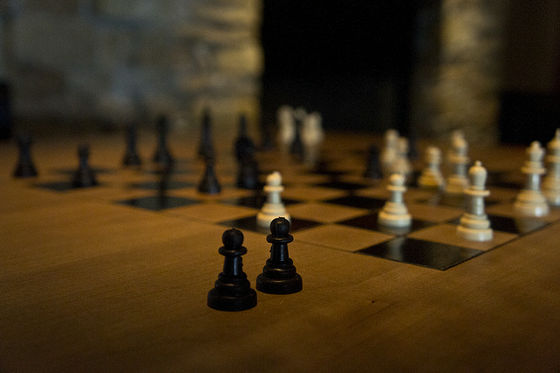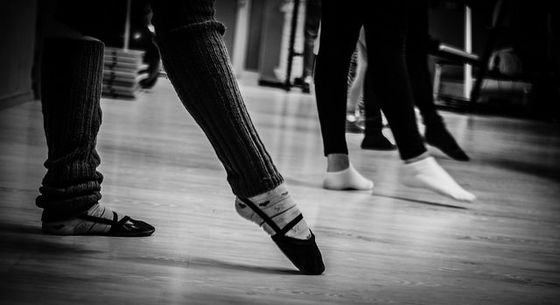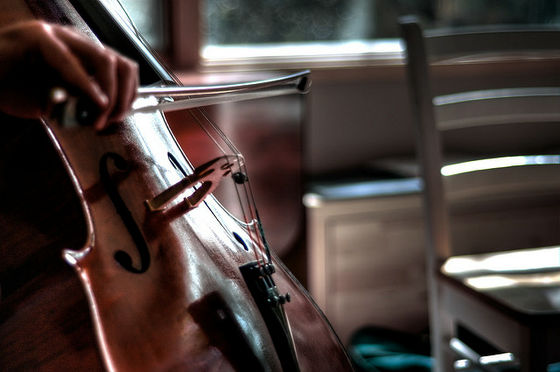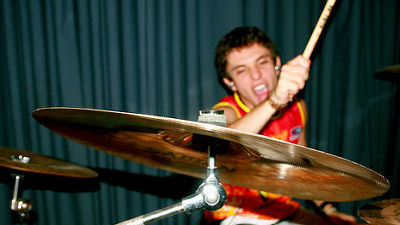A way to acquire first-class skills in specific fields that can be applied to everything

ByJoint Hometown News Service
It is said that anyone can acquire first-class skills by trained 10,000 hours of exercise, "Law of 10,000 hours"is. This is a law defined in Malcolm Gladwell's book "Genius! Successful Laws", a study of Mr. Anders Erikson, a psychologist who is a leading expert in research on mastery Although it was originally invented, Mr. Ericsson himself explained "There is a part that is misunderstood a little" and explains what is really necessary to acquire first-rate skills.
Anders Ericsson: How to become an expert at anything - Business Insider
http://www.businessinsider.com/anders-ericsson-how-to-become-an-expert-at-anything-2016-6

Ericsson seems to have played chess with his classmate when he was in his teens. At that time, one of the confrontation partners, there was a classmate who was apparently less skilled than Mr. Ericsson. However, one day, Mr. Ericsson will be defeated by this classmate. At this time, Mr. Ericsson seems to have felt rather than losing, "I want to know what the classmate did and how much I improved chess skills dramatically so far."
After all, I do not know the answer of "Why did he dramatically improve his chess?" Mr. Ericsson said he kept losing in chess, but in myself he felt "I want to play chess" I notice that I am interested in "How do humans acquire first-class skills?" Since then, Mr. Ericsson has been involved in research on human proficiency, and he is currently conducting research as a professor of psychology at Florida State University.

ByRuocaled
According to Mr. Ericsson 's research, many people can not be professional violinists and athlete athletes participating in the Olympics and become the world' s top athlete simplyBecause there is not enough "serious exercise". The "serious practice" required to acquire skills beyond the current ability is meaningless only by repeatedly practicing skills that have been satisfied that they have already acquired, "clear target" and " It is necessary to become a teacher "to achieve the goal. This "teacher" refers to the existence that gives feedback on his own exercise, so that it will lead to improvements while adjusting its own performance little by little.
Mr. Ericsson's study stipulates that people who are called first-class in different fields such as professional writings and athletes, have exercised "serious practice" without exception. And, it is easy to understand this "serious practice", and the "rule of 10,000 hours" is Malcolm Gladwell's book "Genius! Law of Successful People". With the advent of this book, Mr. Ericsson's idea of "serious exercise" became widely known with "the rule of 10,000 hours". Briefly explaining Mr. Gladwell's "rule of 10,000 hours", "If you tackle 10,000 hours of exercise, you can acquire first-rate skills".
Genius! The Law of Successful People | Malcolm Gladwell, Katsuma Kazuyo | Books | Amazon.co.jp

However, Mr. Gradwell explains about "the rule of 10,000 hours" in the "Law of Successful People" in "Genius! Successful Laws" is incorrect, but simply repeating the same action for 10,000 hours, the first-class skills Ericsson says he can not learn.
Mr. Ericsson said Mr. Gladwell concluded his book based on a paper written by Mr. Ericsson in collaboration with his colleagues in 1993. In the 1993 paper, a survey was conducted on 40 violinists in Germany, and a survey focusing on "what is the difference between top-level musicians and musicians who do not?" is. In the survey, it was investigated how the targeted violinists sent their private life, and among the violinists the people who are classified as the top level are taking a lot of practice time in their lives Has become clear. Mr. Ericsson and his research team seems to have conducted a similar survey for pianists, but the results of the survey also said that "the more high level musicians are doing a lot of exercises." And, when you average the practice time of excellent violinists, they said that they were practicing 10,000 hours in total by the age of 20, and from this point Mr. Gladwell said "To practice 10,000 hours It is necessary to define ", Ericsson said.
However, there are those who have spent more practice time and some acquire first-class skills with less practice time. The answer that Mr. Ericsson derived from the findings of the past 30 years,"Serious exercise" in every field is the key to bring out high level performance,something like. This idea is spoken in Mr. Ericsson's book "Peak: Secrets from the New Science of Expertise".
Amazon.com: Peak: Secrets from the New Science of Expertise eBook: Anders Ericsson, Robert Pool: Kindle Store

Mr. Ericsson believes that what is absolutely necessary to acquire first-class skills is "practice only", and "genetic factors" such as high recognition ability and physical ability can acquire first-rate skills I am skeptical as to whether it will be an important factor. Genetic characteristics such as the size of the body are elements that can not be changed by practice, and it is said that performance itself can not be greatly influenced. Mr. Ericson said,Even intelligence does not directly relate to first-class performances,apparently.
In "Peak" we have taken up that the study of Britain discovered that "From the child's IQ, you can predict cheese smoothness". However, as far as children's elite chess players are concerned, the height of IQ seems to have been associated with bad skills. On the other hand, it is also clear that high IQ is useful for learning basic skills in chess, and eventually IQ did not become a necessary element to acquire first-class skills in chess ,apparently. However, to acquire first-class skills, it seems that it was essential to tackle serious exercise as a matter of course.
In this way, Mr. Ericsson seems to have been investigating whether there are any factors that will restrain it when children acquire first-class skills in the past 30 years, but " , I have not yet encountered such elements "The physical ability and the height of IQ are not absolutely necessary to acquire first-class skills, And we are doing.

BySara Ristić
However, in recent years the movement to investigate whether Mr. Ericsson's research on "serious practice" is really correct is increasing in recent years. In May 2016, Mr. Ericsson's "Serious Practice" says that although it can explain the difference between an athlete who is proficient and an athlete who is not, it can not explain everythingresearch resultHas been announced. In other words, although it is necessary to have a sincere exercise in order to acquire first-class skills, he insisted that I do not know how important other elements are playing and what role they play.
In response to this, Mr. Ericsson argues that he is confusing serious practice with ordinary practice. Mr. Ericsson says that he can not say that he is working on a serious practice unless practiced by a teacher to improve his performance. Mr. Ericsson also says that most practice is classified as "ordinary practice" which does not lead to an improvement in performance.

ByNosha
Also, Mr. Ericsson says, "Many failures are needed to acquire the skills of the target through practice." According to the findings on the figure skater 's practice time, it was revealed that the elite skater was practicing unknown jumps and spins longer than the average of the entire skater. By contrast, the average skater will spend a lot of time on practicing skills you have already learned.
Related Posts:
in Note, Posted by logu_ii







